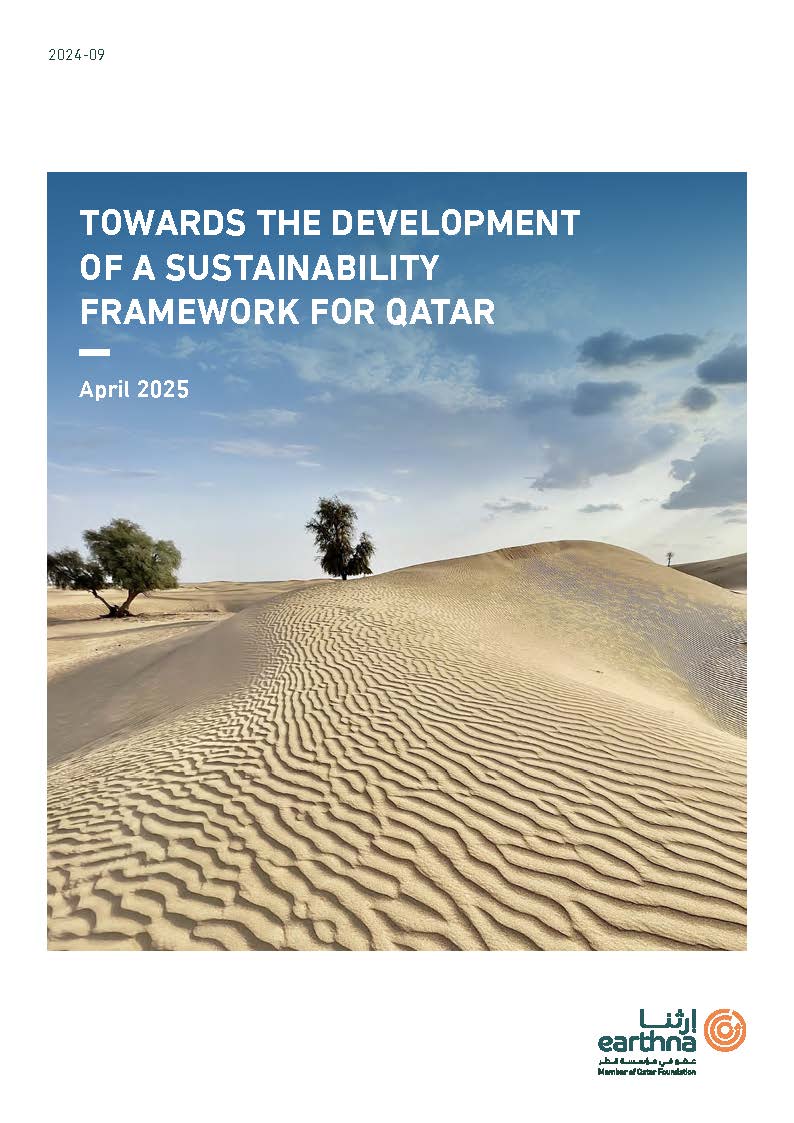
This report presents a vision for Qatar’s sustainable future through the lens of inclusive wealth, a concept that redefines national prosperity beyond income, by valuing natural, human, social, and physical capital. Anchored in Qatar National Vision 2030, it emphasizes balancing economic growth with environmental preservation and social well-being.
Qatar's wealth is significantly rooted in non-renewable natural capital, particularly oil and gas. While this has driven rapid economic growth and development, it poses sustainability challenges in the long term. The report argues for reinvesting revenues from fossil fuels into other forms of capital—like human skills, infrastructure, and ecosystems—following the Hartwick Rule. This approach enables long-term prosperity even as non-renewable resources are depleted.
The report identifies three pillars for a sustainability framework:
1. Reinvesting resource rents into renewable natural and human capital.
2. Integrating international and domestic perspectives, given Qatar’s role in global energy markets.
3. Monitoring inclusive wealth per capita, to ensure development remains sustainable over time.
In conclusion, the inclusive wealth framework offers Qatar a powerful tool for transitioning from resource dependence to sustainable resilience, while ensuring that future generations inherit a robust portfolio of well-managed assets.
